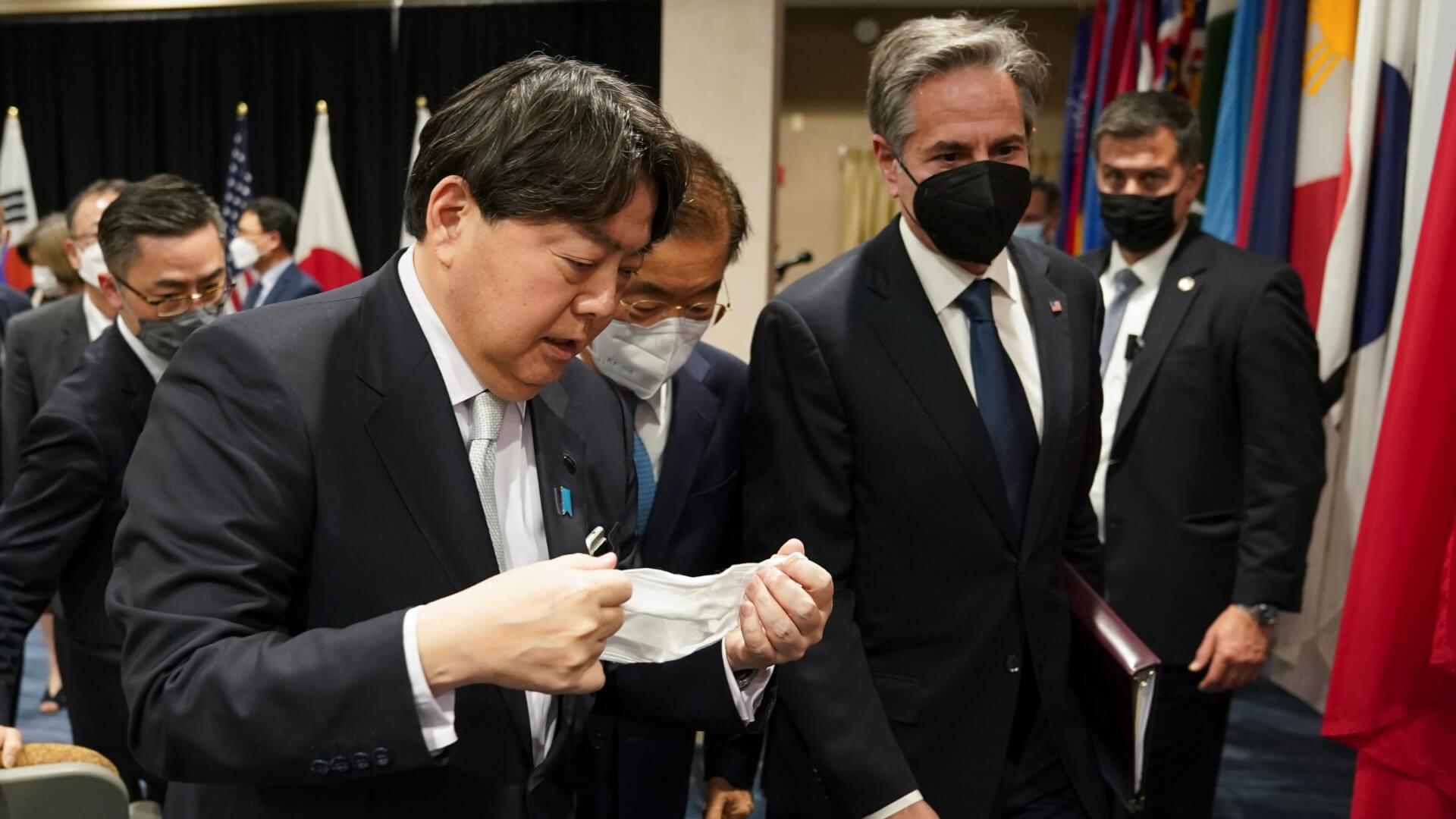United States (US) Secretary of State Antony Blinken met with Japanese Foreign Minister (FM) Hayashi Yoshimasa and South Korean FM Chung Eui-yong in Honolulu, Hawaii on Saturday to discuss the series of missile tests conducted by nuclear-armed North Korea this year.
The diplomats issued a joint statement which stated that all three diplomats had “committed to expand[ing] cooperation and collaboration across a range of regional and global security and economic priorities.”
Referring to North Korea’s official name, the Democratic People’s Republic of Korea (DPRK), the statement asserted that the three diplomats “condemned the DPRK’s recent ballistic missile launches and expressed deep concern about the destabilizing nature of these actions.”
Furthermore, they “committed to close trilateral cooperation to achieve complete denuclearization and lasting peace on the Korean Peninsula” and “called for full implementation by the international community of relevant UN Security Council resolutions relating to the DPRK.” They also urged Pyongyang “to cease its unlawful activities and instead engage in dialogue,” while emphasising that “they held no hostile intent” towards it. All three sides assured their “continued openness to meeting the DPRK without preconditions.”
Since the beginning of the new year, Pyongyang has carried out at least seven missile tests, including one of a hypersonic missile. The constant acts of aggression have put North Korea’s neighbours on edge and have prompted international concern.
Had an excellent trip to Melbourne for the Quad, Fiji to meet with Pacific Island leaders, and Honolulu for a trilateral meeting with Japan and the ROK. The U.S. is a proud part of the Indo-Pacific, and this region is critically important to our nation’s security and prosperity. pic.twitter.com/Ng8IiIhk8d
— Secretary Antony Blinken (@SecBlinken) February 13, 2022
With respect to the Indo-Pacific, the statement highlighted the three countries’ “common view” of an “inclusive” and free and open Indo-Pacific (FOIP). They also “shared respect for the rules-based international order” and pledged to expand trilateral cooperative relationships.
Moreover, Japan and South Korea also welcomed the US’ newly released Indo-Pacific Strategy. The latest strategy document highlights the US’ five objectives in the Indo-Pacific:
- Advancing FOIP
- Building connections within and beyond the region
- Driving regional prosperity
- Bolstering Indo-Pacific security
- Building regional resilience to transnational threats
Washington’s new policy document also notes that the US and its global allies “have a stake” in the region. “Like Japan, we believe that a successful Indo-Pacific vision must advance freedom and openness and offer “autonomy and options… Like the ROK, we aim to promote regional security through capacity-building,” the strategy document reads.
Blinken also discussed Russia’s military build-up along the Ukraine border with his counterparts. All three ministers “shared unwavering support for Ukraine’s sovereignty and territorial integrity” and “committed to work[ing] closely together to deter further Russian escalation.”
The allies also discussed “common approaches” to address global priorities such as “the climate crisis, critical supply chains, gender equality and empowerment, development finance, and global health security including efforts to end the COVID-19 pandemic and prevent the next.”

